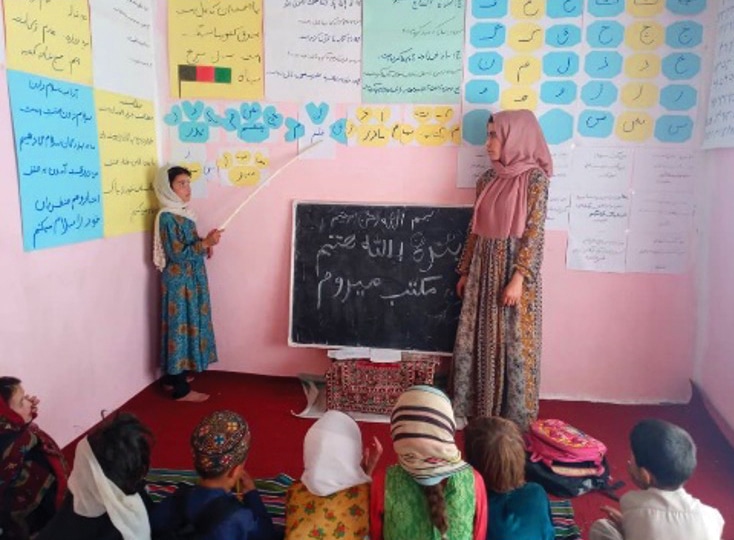Sitora Majnunova, 41, lives with her brother and daughter in the Roshkala district in Tajikistan’s marginalized Gorno Badakhshan region. Following the death of her husband a few years back, Sitora was at an all-time low. Although she had a passion for sewing, she lost interest in life. She explains, “I had stress and was sick after my husband’s death and nobody could encourage me.”
But all that changed when she decided to attend a CAI-supported training on financial literacy organized by CAI-Tajikistan. Sitora remarked, “It was transformative. The pieces finally came together, and the group of women were so supportive and nurturing.”
“I’m so amazed that my attitude towards life could be changed in such a short period, and allow me to start a business, make a profit. The training motivated me to improve my life and my daughter’s. With the knowledge I gained, I prepared a family budget plan including sources of regular and non-regular income, expenses, and how to save.”
Now Sitora has converted her passion into a business creating traditional Tajik garments including woolen carpets for wedding ceremonies, skull-caps for girls, and woolen socks.
The training provided the launching pad for Sitora’s business to take off, and she hasn’t
slowed down since. She has continued to evaluate her business, study the market for her goods, and develop new and creative ideas.
“I am thinking of new business ideas and doing research on product demand in the market.”
Sadia Sahar, 24, lives with her large family in the Khash District in Badakhshan. Her parents are farmers. While Sadia was lucky to attain a bachelor’s level education, she worried about her ability to work, especially under Taliban rule.
“We are a family of ten and I am the eldest. I completed my studies, but previously had no opportunity to find a job in our area to help support my family. Of course, the income from farming is insufficient for our needs.”

She graduated with a degree in Chemistry from Badakhshan University in 2019 but felt devastated when, after two years, she could not find a job.
Following the Taliban takeover in August 2021, the environment for women completely changed in Afghanistan. Sadia remembers feeling utter distress. But, like so many other women in Afghanistan, she had no choice but to keep striving towards her goals.
“I was disappointed but kept busy helping my mother with household chores, farm work, and livestock.”
When she learned of the opportunity to work as a teacher at a community-based school established by CAI, she jumped on it.
In addition to earning an income, she feels her social status has been enhanced, and the trainings have improved her qualifications academically. She has received training in pedagogy, psychology, teaching methodology, and child protection measures.
Now Sadia has a clear vision for her future; she is helping to support her family and saving money to pursue her Master’s Degree. Sadia is not giving up on her future, and neither is Central Asia Institute.
“I am paid $100 per month and spend some on my family and save some money to start my master’s degree when I have saved enough.”
KEEP UP WITH THE LATEST NEWS
Sign up to receive updates and stories from the field.
Privacy Statement | Copyright 2025 Central Asia Institute. All rights reserved. Site Map
CAI is a U.S.-registered nonprofit 501(c)(3) organization, EIN #51-0376237. Contributions may be tax-deductible in the U.S.